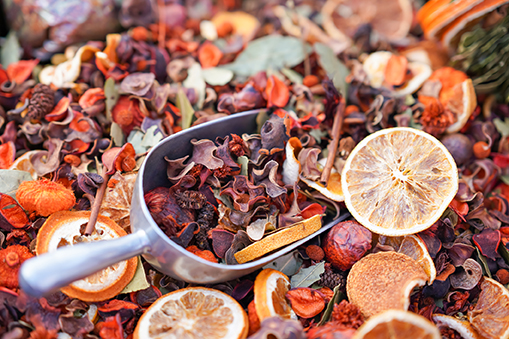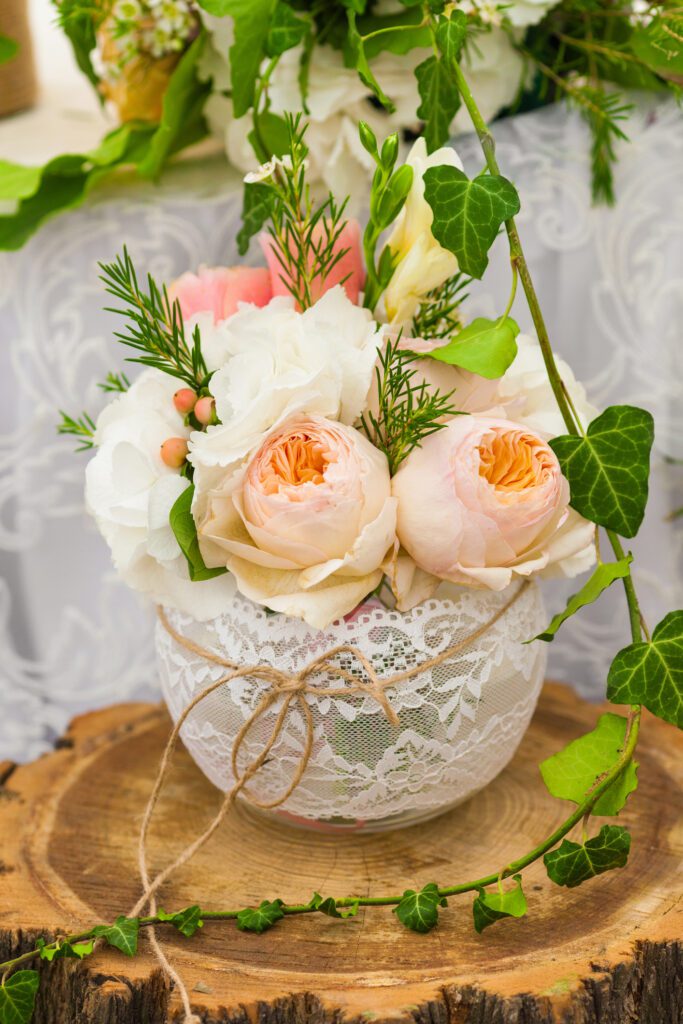Have you ever caught a whiff of fresh summer air that sparked a memory of childhood?
Or taken in a breath of cinnamon and felt the warmth of the holidays?

Our sense of smell is often overlooked as a part of daily life, but has been used in therapies for millennia. Today, we know that smells can evoke emotion, trigger memories, effect mood, cognition, stress and have tangible impacts on how we think and function productively, socially and emotionally.
Scent bypasses the thalamus, that processes most sensory inputs, and goes straight to the hypothalamus, the part of the brain that deals with hormones, stress response, and other autonomic functions. According to Dr. Anne Steinmann of James Cook University, “Exposure to fragranced products has been associated with a range of adverse human health effects, including migraine headaches, contact dermatitis, asthma attacks, respiratory difficulties, and mucosal symptoms.” 1
Personally, as someone with asthma, artificial fragrances can be anywhere from a nuisance to downright dangerous.
So, what are some ways of stimulating the senses without artificial additives?

1. A Walk in the Woods
This may seem obvious, many of us know and identify that nature can be relaxing, but did you know it’s not just being away from the hustle and bustle? The VOC’s (Volatile Organic Compounds) produced by trees and other plants have been shown to have beneficial impacts on stress. In a virtual reality experiment, participants were given a small electric shock. They were then given either a natural scent or an urban odor. Guess which smell resulted in the fastest stress reduction?2 Now, get outdoors!
2. Stovetop Potpourri
According to psychology professor Rachel Herz from Brown University in her book The Scent of Desire” She states, “Our emotional, physical and even sexual lives are profoundly shaped by both our reactions to and interpretations of different smells.” She goes on to describe how closely memory and scent are related and interpreted in the brain. This experience is unique to each person, but can be both therapeutic and triggering depending on the scent and memory.
Think of a positive or happy memory you’ve had in your life and try to recreate it! Was it a meal you have with family? A day in the park with your child? A special vacation you went on?
Stovetop Potpourri Recipe
1. Simmer a pot of water on the stove, keep it low and never leave a cooktop unattended
2. Add 3 ingredients to create your scent, this will give it body and depth
3. Enjoy!
Suggested combinations: Thyme, Mint, and Lemon. Orange, Clove and Cranberry. Pine, Rosemary, Vanilla Extract.
Or, just make your favorite soup or tea! A classic chicken and dumpling from scratch brings back memories of a simpler time in my life.

3. Festive Seasonal Decorations
Bringing the outside in has been a tradition since the invention of buildings! Each season brings new fresh scents and holidays to decorate for. Make sure to take advantage of scentscapes as much as tablescapes!
For spring and summer, I am a huge fan of flowers. Whether potted or cut, floral scents have been shown to reduce stress response as well as gene expression related to stress. 3

During the winter holiday season, wreaths and forest scents are common additions to décor. One decoration in particular may help improve your immune response and lower stress levels!
Popular in Middle Ages in Europe, Pomander balls may live up to their historical legacy as staving off disease. Some studies have found citrus scents to have positive effects on the immune system and depression.4
Regardless of your preferred scent or delivery system, the nose knows! Follow your schnozz to a happier, healthier season!
Works Cited
- Steinemann, Anne. “Health and Societal Effects from Exposure to Fragranced Consumer Products.” Preventive Medicine Reports, vol. 5, 2017, pp. 45–47. Crossref, www.ncbi.nlm.nih.gov/pmc/articles/PMC5122698.
- Yeager, Ashley. “Smells of Nature Lower Physiological Stress.” The Scientist Magazine®, 8 Jan. 2020, www.the-scientist.com/news-opinion/smells-of-nature-lower-physiological-stress-66864.
- Warner, Jennifer Warner, and Louise Chang, MD. “Floral Scent Soothes Stress.” WebMD, 24 July 2009, www.webmd.com/balance/news/20090724/floral-scent-soothes-stress.
- Komori, Teruhisa, et al. “Effects of Citrus Fragrance on Immune Function and Depressive States.” Neuroimmunomodulation, vol. 2, no. 3, 1995, pp. 174–80. Crossref, pubmed.ncbi.nlm.nih.gov/8646568.



